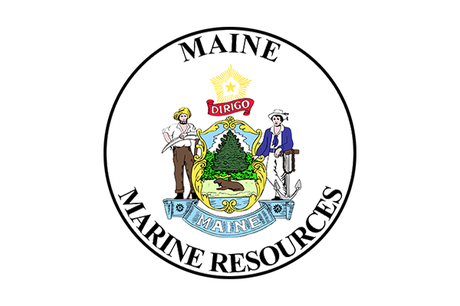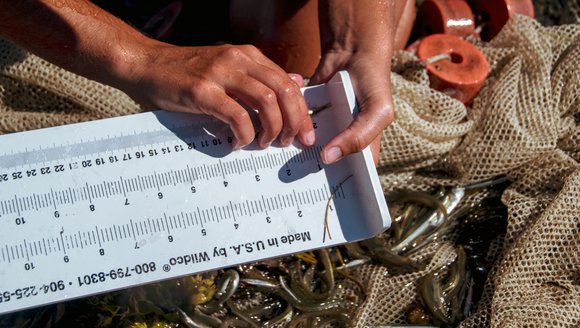Baseline Monitoring in the Research Array
Understanding the baseline pelagic ecosystem within the Research Array.
We will collaborate with other state researchers to monitor the baseline pelagic ecosystem within the Gulf of Maine Offshore Wind Research Array (Research Array). We will use the data collected to set a baseline understanding of the environment will be used to assess changes caused by offshore wind development within the Research Array. We will conduct acoustic surveys and collect environmental DNA data to inform the baseline monitoring.
Project Goals:
- Collaborate with state and academic researchers to improve biological understanding of the Research Array.
- Gather baseline information on pelagic fish communities in the Research Array.
- Understand current biomass for invertebrates and near-bottom fish communities in the Research Array.
The Gulf of Maine Research Institute (GMRI) supports the baseline monitoring of the pelagic ecosystem in the Research Array in partnership with the University of Maine and Maine Department of Marine Resources. Using the RV Merlin, GMRI will conduct acoustic surveys along predetermined transects within the Research Array site. Survey analysis will identify pelagic fish schools, near-bottom fish biomass, and pelagic invertebrate biomass. The analysis will also develop a baseline understanding of the current depth of the biological maximum to later identify if turbines change water-column stratification or other features.


Water samples will be collected along the survey transects for future environmental DNA (eDNA) analysis. These samples could be used for ground truthing results of the acoustic surveys to identify species specific schools and further characterize the pelagic communities.
Collecting both acoustic and eDNA baseline information in the Research Array site will allow for changes in ecosystem ecology to be examined when turbines and moorings have been developed in the area.
Project Team
-
![]()
-
![]()
Walt Golet
Assistant Professor, UMaine School of Marine Sciences
-
![]()
-
![]()
Read More
-
The Merlin: Updates to our New Research Vessel
What began as a harpoon tuna fishing vessel, generously donated to GMRI by David Linney and the Linney family, is now a state of the …
Announcements
-
2022 Research Progress Update
To keep you updated on our research team's progress, we've developed a report showcasing some of the achievements from our labs. More broadly, this report …
Announcements
-
Tuna School: Crash Course on a Local Delicacy
Atlantic bluefin tuna can present some challenges for seafood consumers looking for responsibly harvested options. These highly migratory fish are a complex species to manage, …
Perspectives
-
A Field Season in Photos
Explore our 2022 Field Season with a selection of our favorite photos from throughout the year. Whether tagging blue sharks offshore, seining the beaches of …
Perspectives





